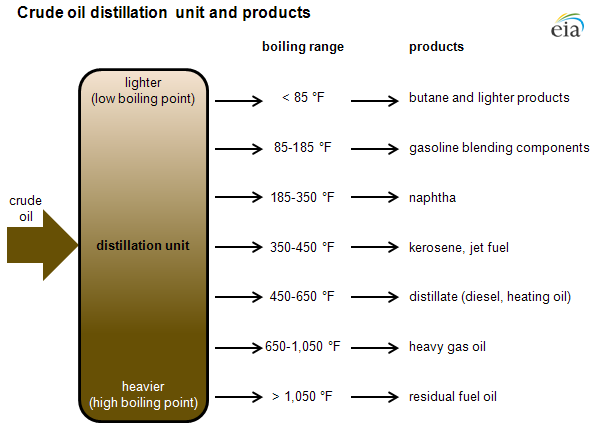
Crude oil distillation and the definition of refinery capacity

A crude oil refinery is a group of industrial facilities that turns crude oil and other inputs into finished petroleum products. A refinery's capacity refers to the maximum amount of crude oil designed to flow into the distillation unit of a refinery, also known as the crude unit.
The diagram above presents a stylized version of the distillation process. Crude oil is made up of a mixture of hydrocarbons, and the distillation process aims to separate this crude oil into broad categories of its component hydrocarbons, or "fractions." Crude oil is first heated and then put into a distillation column, also known as a still, where different products boil off and are recovered at different temperatures.
Lighter products, such as butane and other liquid petroleum gases (LPG), gasoline blending components, and naphtha, are recovered at the lowest temperatures. Mid-range products include jet fuel, kerosene, and distillates (such as home heating oil and diesel fuel). The heaviest products such as residual fuel oil are recovered at temperatures sometimes over 1,000 degrees Fahrenheit.
The simplest refineries stop at this point. Although not shown in the simplified diagram above, most refineries in the United States reprocess the heavier fractions into lighter products to maximize the output of the most desirable products using more sophisticated refining equipment such as catalytic crackers, reformers, and cokers.